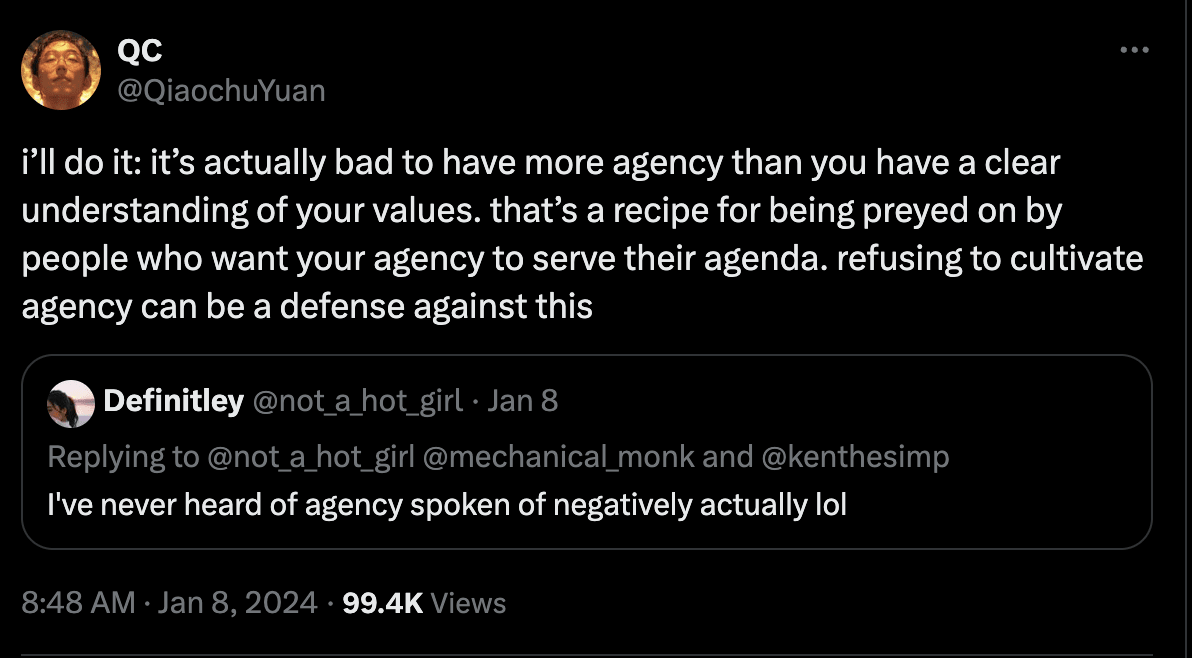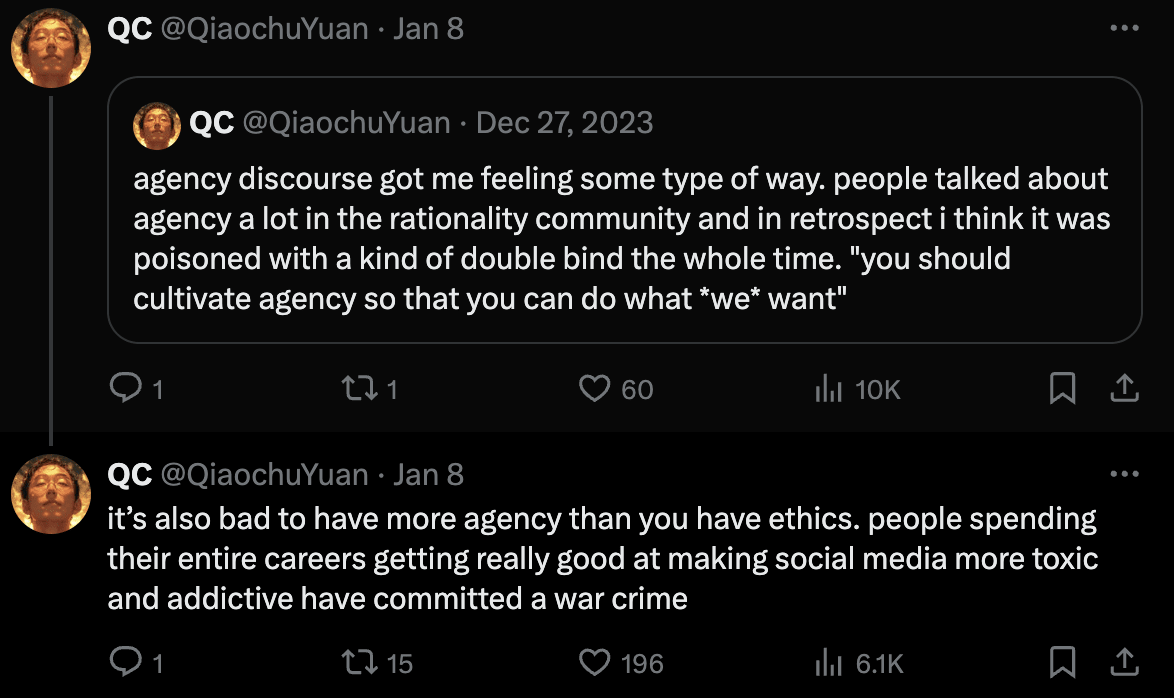You raise a good point that Susan’s relationship to Tusan and Vusan is part of what keeps her opinions stuck/stable.
But I’m hopeful that if Susan tries to “put primary focal attention on where the scissors comes from, and how it is working to trick Susan and Robert at once”, this’ll help with her stuckness re: Tusan and Vusan. Like, it’ll still be hard, but it’ll be less hard than “what if Robert is right” would be.
Reasons I’m hopeful:
I’m partly working from a toy model in which (Susan and Tusan and Vusan) and (Robert and Sobert and Tobert) all used to be members of a common moral community, before it got scissored. And the norms and memories of that community haven’t faded all the way.
Also, in my model, Susan’s fear of Tusan’s and Vusan’s punishment isn’t mostly fear of e.g. losing her income or other material-world costs. It is mostly fear of not having a moral community she can be part of. Like, of there being nobody who upholds norms that make sense to her and sees her as a member-in-good-standing of that group of people-with-sensible-norms.
Contemplating the scissoring process… does risk her fellowship with Tusan and Vusan, and that is scary and costly for Susan.
But:
a) Tusan and Vusan are not *as* threatened by it as if Susan had e.g. been considering more directly whether Candidate X was good. I think.
b) Susan is at least partially compensated by her partial-risk-of-losing-Tusan-and-Vusan, by the hope/memory of the previous society that (Susan and Tusan and Vusan) and (Robert and Sobert and Tobert) all shared, which she has some hope of reaccessing here
b2) Tusan and Vusan are maybe also a bit tempted by this, which on their simpler models (since they’re engaging with Susan’s thoughts only very loosely / from a distance, as they complain about Susan) renders as “maybe she can change some of the candidate X supporters, since she’s discussing how they got tricked”
c) There are maybe some remnant-norms within the larger (pre-scissored) community that can appreciate/welcome Susan and her efforts.
I’m not sure I’m thinking about this well, or explicating it well. But I feel there should be some unscissoring process?


I mean, I see why a party would want their members to perceive the other party’s candidate as having a blind spot. But I don’t see why they’d be typically able to do this, given that the other party’s candidate would rather not be perceived this way, the other party would rather their candidate not be perceived this way, and, naively, one might expect voters to wish not to be deluded. It isn’t enough to know there’s an incentive in one direction; there’s gotta be more like a net incentive across capacity-weighted players, or else an easier time creating appearance-of-blindspots vs creating visible-lack-of-blindspots, or something. So, I’m somehow still not hearing a model that gives me this prediction.